Much has been said about Level 7 Senior Leader Apprenticeships in recent weeks, following Sir Keir Starmer’s announcement last month that changes will be made to level 7 funding. In this article, we explore that whilst the case exists for how level 7 might be reformed, it’s crucial to understand the transformative nature that apprenticeships offer to so many workers across the UK.
As the Dean of Ashridge campus at Hult International Business School, I’ve had the privilege of witnessing firsthand the profound impact that education can have on individuals, businesses and society as a whole. Among the programs we offer, one that stands out for its transformative potential is the Level 7 Senior Leader Apprenticeship in Leadership & Management. This highly practical program combines academic learning with on-the-job experience. As such, it’s shaped and changed the lives of individuals—along with the organisations in which they work—in deep and lasting ways.
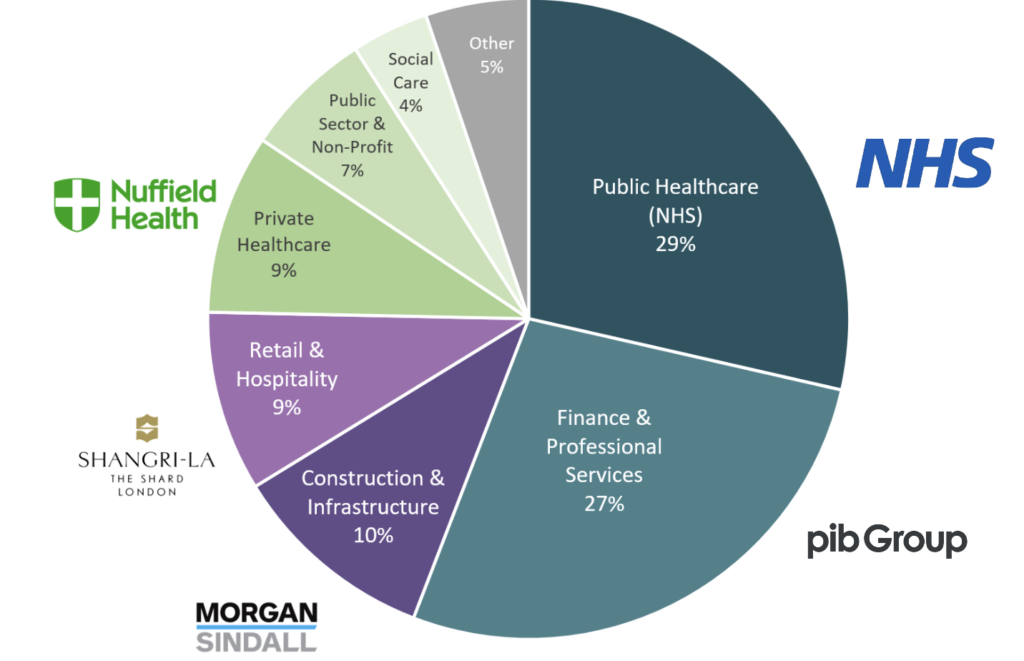

The social mobility challenge: A second chance for many
Back in the 1990s, debates around social mobility and access to higher education held the spotlight. With the phasing out of grants and the introduction of student loans, the goal was to make higher education more accessible. However, like many well-intentioned policies, the outcome hasn’t always lived up to expectations.
Fast-forward to today, and apprenticeships are offering a second chance to many who missed out on traditional university education. Since we added apprenticeships to our educational offering in 2018, we’ve witnessed a significant number of apprentices who are now able to access higher education through this route. While many companies could not afford to pay for their employees’ degrees, they opt to utilise the levy, opening doors for employees who may have been disadvantaged earlier in life.
This is not just a small group of beneficiaries; we see large numbers of workers, often from marginalised communities, benefiting from this alternative route to higher education. For many, the apprenticeship is not just a professional opportunity, but a way to overcome barriers that have historically held them back.
We see large numbers of workers—often from marginalised communities—benefiting from this alternative route to higher education. For many, the apprenticeship is not just a professional opportunity, but a way to overcome barriers that have historically held them back.
Widening participation in higher education
Apprenticeships have become a vital lever in widening participation in higher education in the UK. They’re especially attractive to mature learners—hard-working individuals who, for various reasons, missed out on the traditional route to higher education. Unlike part-time degree programs, which can impose additional strains on work and family commitments, apprenticeships offer the flexibility to study while working full-time, allowing these individuals to balance their professional and personal lives. 20% of our senior leaders have no prior qualification at degree level and 87% achieved a distinction or merit at EPA.
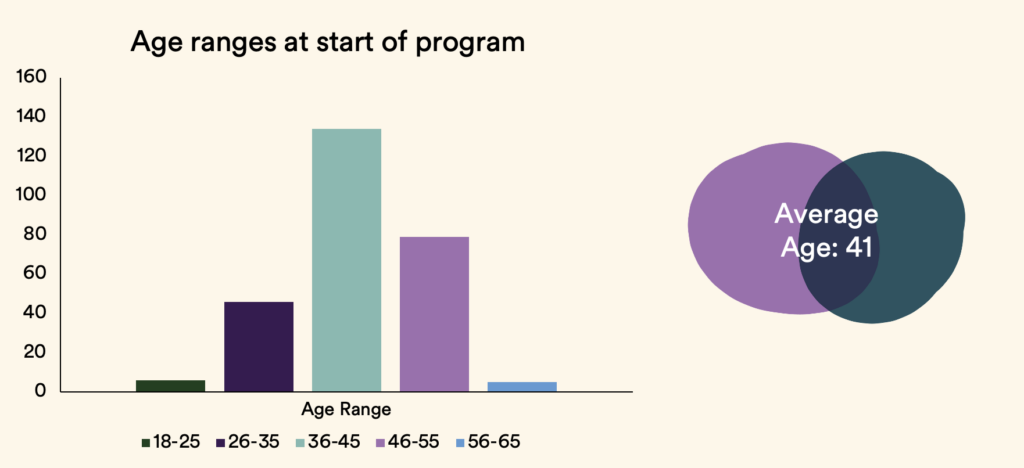

Our apprenticeship programs at Ashridge have consistently attracted higher numbers of women and ethnic minorities. For example, almost half of our senior learners are female. And within the NHS, almost two thirds, showing a clear drive for advancing women in leadership positions. And 40% of our NHS senior leaders are from a BAME background.* These programs create a more inclusive educational environment. They support those who might not have had the opportunity to pursue a university degree in the traditional sense.
We’ve also seen a growing number of apprentices with special educational needs (SEN), such as dyslexia or ADHD. Many of these were previously undiagnosed during their schooling years. Apprenticeships offer them a second chance to succeed in education with appropriate support systems in place. This ensures that no-one is left behind. And our SEND learners certainly thrive here at Ashridge, with 77% achieving a distinction at EPA.


We’ve seen a growing number of apprentices with special educational needs, such as dyslexia or ADHD. Many of these were previously undiagnosed during their schooling years. Apprenticeships offer them a second chance to succeed in education with appropriate support systems in place.
Addressing the skills gap in the UK
One of the most pressing challenges for businesses in the UK is the skills gap. While many professionals have expertise in their technical fields, they often lack the strategic and leadership skills necessary to thrive in today’s complex business environment. The Level 7 Senior Leader Apprenticeship directly addresses this gap. It equips individuals with the advanced skills needed to lead in senior roles. The curriculum focuses on strategic thinking, leadership and change management—preparing participants to navigate the complexities of modern business.
The apprenticeship not only helps bridge the skills gap, but also ensures that businesses are developing high-potential employees into future leaders. This is critical for the UK’s economic competitiveness in a rapidly changing global marketplace.
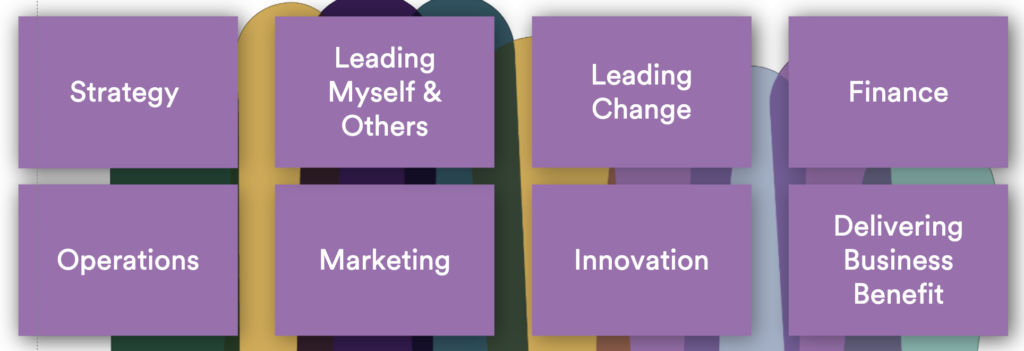

A unique learning experience: Bridging theory and practice
What sets the Level 7 apprenticeship apart from traditional academic programs is its blend of theoretical learning and practical experience. Apprentices spend much of their time applying academic concepts in the workplace, solving real-world business challenges. This experiential learning model is one of the key reasons why the program is so transformative.
For many participants, the apprenticeship represents their first opportunity to step into a leadership role. The practical experience they gain is complemented by academic learning in subjects like organisational behaviour, financial management and strategic leadership. This dual approach ensures that apprentices not only develop the skills to lead, but also understand the broader business landscape they operate within.
Career advancement and personal growth
For individuals, the Level 7 Senior Leader Apprenticeship is often a career-defining experience. The program opens new doors for career development, with apprentices well-positioned to take on senior leadership roles within their organisations. The financial benefits are significant too, as enhanced skills and qualifications lead to greater earning potential. We recently surveyed our 2024 graduates three months post-graduation. 50% self-reported as working at a more senior level as a direct result of their apprenticeship at Hult.


However, the apprenticeship is more than just a stepping stone for career growth—it fosters profound personal development. Participants develop self-awareness, emotional intelligence, and resilience, all of which are essential qualities for effective leadership. Many describe the program as a journey of self-discovery. They learn to manage stress, understand their strengths and weaknesses and gain the confidence to lead authentically. In our 2024 graduate survey, 100% of our learners on the senior leader apprenticeship said their confidence had increased at senior level.


Promoting diversity and inclusion in leadership
One of the most exciting outcomes of the Level 7 apprenticeship is its potential to foster diversity and inclusion in leadership roles. Traditionally, senior leadership positions in the UK have been dominated by individuals from specific educational and socio-economic backgrounds. Apprenticeships provide an alternative route to leadership, particularly for those who did not follow the traditional academic path.
This more inclusive approach to leadership development allows a diverse range of individuals—career changers, women returning to the workforce, or those from underrepresented communities—to step into senior roles. A more diverse leadership pool brings fresh perspectives and innovation to organisations, helping them better reflect and serve society.
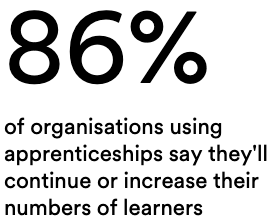

Driving economic growth and social mobility
At a national level, the Level 7 Senior Leader Apprenticeship plays a crucial role in driving economic growth. Strong leadership is essential for businesses to compete and innovate. And by developing the next generation of leaders, apprenticeships contribute directly to the UK’s global competitiveness.
Moreover, these programs help drive social mobility by providing individuals with the skills and qualifications they need to succeed in senior roles. This not only benefits the individuals themselves, but also has a positive ripple effect on their families, communities and the broader economy.
As we look ahead, the demand for strong, strategic leaders will only grow. The Level 7 apprenticeship is part of the solution, equipping the next generation of leaders to drive business success and contribute to the UK’s long-term prosperity.
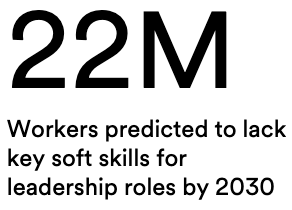

A pathway to transformation
The Level 7 Senior Leader Apprenticeship is more than just an apprenticeship. It’s a transformative opportunity for individuals, businesses and the UK economy. By fostering leadership, personal growth, diversity and inclusion, this apprenticeship offers a pathway to success for many who would otherwise be left behind.
As we look ahead, the demand for strong, strategic leaders will only grow. The Level 7 apprenticeship is part of the solution. It equips the next generation of leaders to drive business success and contribute to the UK’s long-term prosperity. As the future of apprenticeships hangs in the balance, we must not lose this vital opportunity for transformation.
*Data collected represents 300 learners who completed a senior leader apprenticeship before June 2024
Have Your Say
With funding for Level 7 apprenticeships hanging in the balance, we want to hear from employers to help us present a clear picture of what’s at stake.
Take our survey to share your views on the impact of changes to senior leader funding.
Take the Survey


